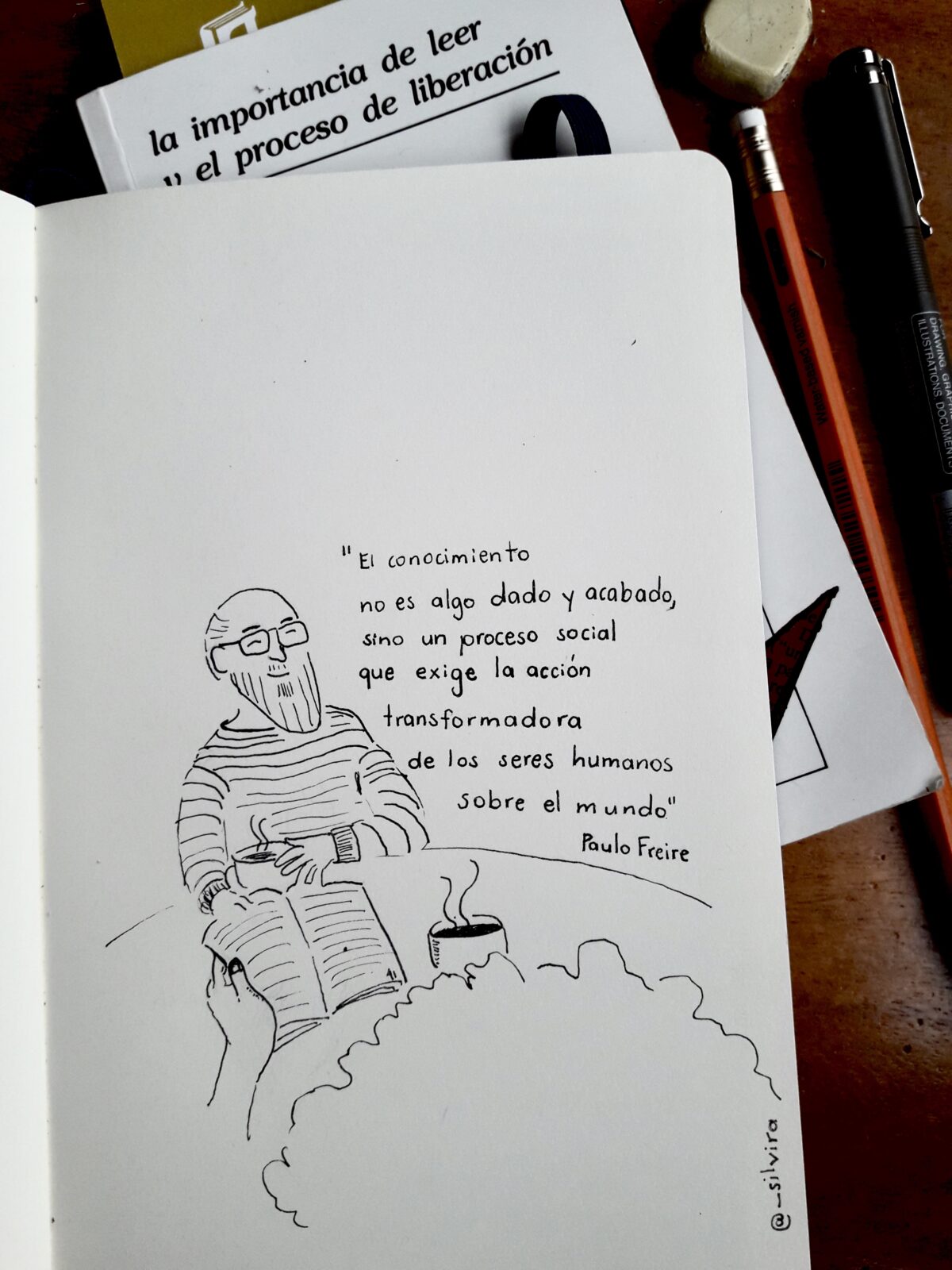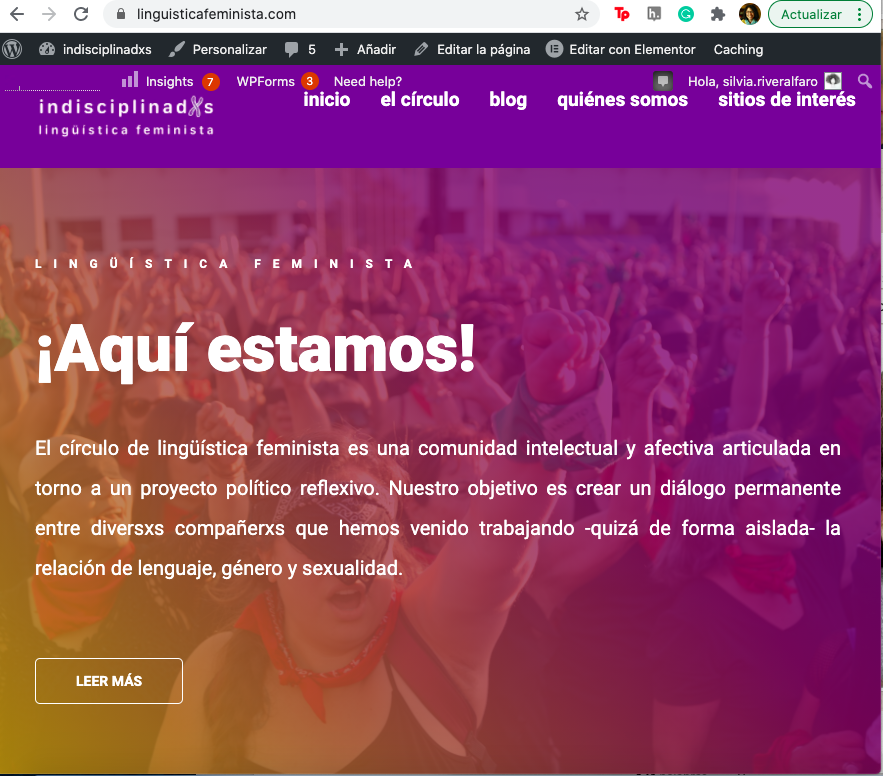“Correctly answering it can also be an antidote to project that are done just because they sound cool”
Chris Stein
From this week’s readings, I particularly want to focus on Stein’s introduction. The question and details proposed by Chris will be with us for the rest of this and next semester.
Therefore, taking the time to spend the provocation on Stein is very important. I hope I will come back to Stein and this post and feel happy at the end of this semester, but I plan to re-visit it from time to time.
As Chris states, asking questions is a central process for starting any project. I wonder how we ask those questions to ourselves. Particularly I want to introduce the concept of sentipensar, proposed by Fals-Borda, to think through. Orlando Fals-Borda was a Colombian researcher and sociologist who was particularly involved in the peasant social movements in the 60s (and so on).
“Sentipensar” which is translated as thinking-feeling comes from that fieldwork/life experience. To understand what thinking-feeling implies, I quote Escobar:
The terms sentipensar and sentipensamiento are reported by Colombian sociologist Orlando Fals Borda (1984) as the living principle of the riverine and swamp communities of Colombia’s Caribbean coast. They imply the art of living based on thinking with both heart and mind. See http://www.youtube.com/watch?v=LbJWqetRuMo. Sentipensamiento was later on popularized by the Uruguayan writer Eduardo Galeano as the ability found among popular classes to act without separating mind and body, reason and emotion (see, e.g., http://www.youtube.com/watch?v=wUGVz8wATls).
Bernardo Escobar
This ontological-epistemological perspective challenges how we process the questions proposed by Stein. At the same time, thinking-feeling contributes to decolonizing our way of doing our projects. It is an opportunity to amplify those questions, especially when we think of people because we all have a who village in our process. That is, our project might be digital, but there will always be a real world and that is the world we want to impact on.
Said that, I propose to think-feel the following questions:
- How does Stein’s questions dialogue with our projects?
- What’s our ontological approach to this questions?
- Could embodiment be an importal point to take into the conversation?
- If you work with people, I think an important question is “what are you taking from people and what are you given to them?” Are you approaching community with an extrativist perspective?
- How is that technology that you are using connected to people and to the social context?
- How are you feeling in the process? What emotions could bring you doing that project? Is there something you can change in your project so that while responding your w-questions you also respond to your wellbeing?
I believe decolonizing our project from methodology to the product is a possibility, and for me it is a necessity.
About the picture. The picture quotes Freire: “Knowledge is not something given and already finished, it is a social practice that requires the transformative action of people over the world” and it is from the book “The importance of reading and the process of liberation”. The drawing is mine.



